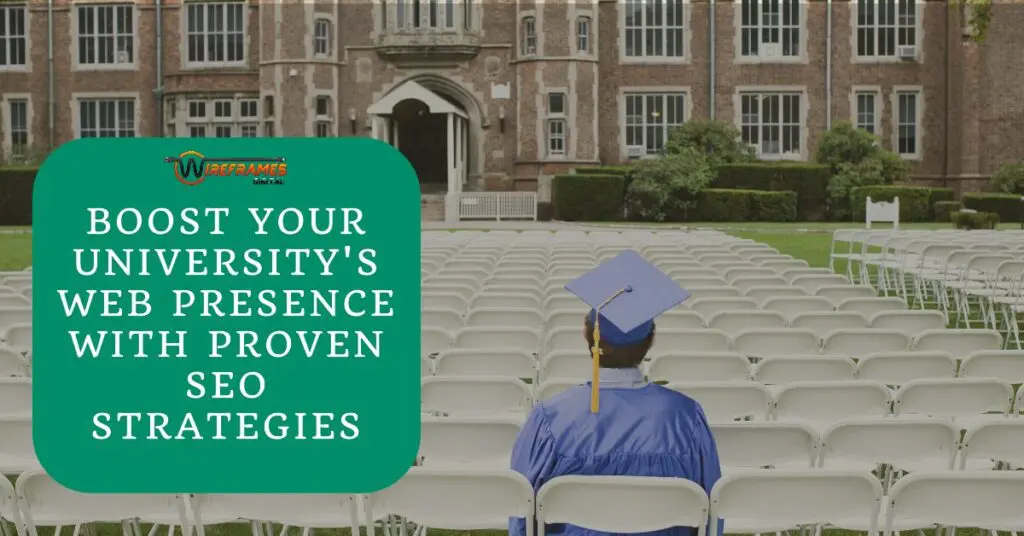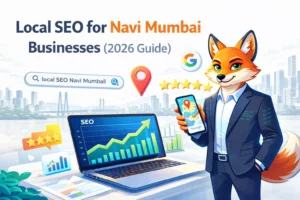Introduction
Search Engine Optimization (SEO) has long been a crucial asset for businesses, but it is equally essential for educational institutions. From universities and colleges to online courses and school websites, an optimized online presence can guide prospective students, parents, and stakeholders to your institution. This blog aims to provide a comprehensive guide on SEO for educational institutions, detailing the practical benefits, key features, and best practices for staying ahead in digital visibility.
Understanding SEO for Educational Institutions
Search Engine Optimization (SEO) involves optimizing web pages to improve their ranking in search engine results, primarily Google. This optimization increases organic traffic, meaning users visit your site naturally through search engines rather than via paid advertisements. For educational institutions, effective SEO strategies can attract prospective students, facilitate easier access to information, and enhance overall user experience.
Why SEO Matters for Universities and Colleges
SEO for universities and colleges is crucial because of the intense competition within the educational sector. When students and parents search for educational institutions or specific programs, being visible on the first page of search results can make a significant difference. A strong SEO strategy:
- Increases Visibility: High ranking in search results ensures that prospective students find your institution among the top choices.
- Improves Credibility: Appearing in top search results can enhance the perception of your institution’s credibility and prestige.
- Enhances User Experience: Proper SEO practices improve the website’s usability, offering a seamless experience to users.
- Boosts Enrollments: Increased visibility and a positive online presence can lead to higher enrollment rates.
Keyword Research: The First Step
Keyword research is the foundation of a successful SEO strategy. It involves identifying the search terms potential students are likely to use when looking for educational opportunities. Keywords for SEO for universities might include “best universities for business management,” “top engineering colleges,” or “online courses for data science.”
Tools for Keyword Research
Several tools can assist in comprehensive keyword research:
- Google Keyword Planner: This free tool provides data on search volume and competition for various keywords.
- SEMrush: Offers in-depth insights into keyword difficulty, volume, and competitive analysis.
- Ahrefs: Another great tool to find relevant keywords, analyze competitors’ keywords, and track rankings.
Example: Implementing Keyword Research
Suppose you are working on SEO for an online course in digital marketing:
- Identify Core Topics: Start with broad topics such as digital marketing, online marketing courses, etc.
- Use Keyword Tools: Use tools like Google Keyword Planner to generate a list of keywords related to digital marketing courses.
- Analyze and Select Keywords: Choose keywords with high search volume but moderate competition. For instance, “best digital marketing online courses” might be a chosen keyword.
- Incorporate Keywords: Use these keywords naturally in your content to optimize for search engines.
On-Page SEO: Enhancing Your Content
On-page SEO focuses on optimizing elements within your website. This includes your content, meta tags, images, and internal links.
Content Optimization
- High-Quality Content: Create valuable, informative, and engaging content that addresses the needs of your target audience.
- Keyword Density: Use your primary keywords naturally without overstuffing.
- Headers and Subheaders: Use H1, H2, and H3 tags to structure your content for better readability and SEO.
Meta Tags
- Title Tags: Ensure your title tag is descriptive and contains your main keyword.
- Meta Descriptions: Write concise meta descriptions that include your primary keywords.
- Alt Text for Images: Use descriptive alt text for images to improve accessibility and SEO.
Internal Linking
- Relevant Links: Link to other relevant pages within your website to aid navigation and improve SEO.
- Anchor Text: Use descriptive anchor text that includes keywords and accurately describes the linked content.
Example: On-Page Optimization
For a landing page about an MBA program:
- Title Tag: “Master of Business Administration (MBA) Program – [University Name]”
- Meta Description: “Discover our comprehensive MBA program at [University Name]. Learn advanced business management skills and accelerate your career.”
- Content: Detailed information about the MBA program, including curriculum, faculty, admission process, and career opportunities.
- Internal Links: Link to related pages such as faculty profiles, admission requirements, and alumni success stories.
Off-Page SEO: Building Authority
Off-page SEO involves actions taken outside of your website to improve its authority and ranking. This is primarily achieved through building backlinks from reputable websites.
Building Backlinks
- Guest Blogging: Write guest posts for educational blogs or publications.
- Educational Directories: Submit your institution to educational directories and listings.
- Collaborations: Partner with other educational institutions or organizations for mutual backlinks.
Social Media
- Engagement: Actively engage with users on platforms like Facebook, LinkedIn, and Twitter.
- Sharing Content: Share valuable and informative content to attract shares and backlinks.
Example: Off-Page SEO Strategy
To build authority for a college’s nursing program:
- Guest Posts: Write articles related to nursing education for healthcare blogs and websites.
- Directories: List the program in educational and healthcare directories.
- Social Media: Share success stories, student testimonials, and informative articles related to nursing on social media platforms.
Technical SEO: Ensuring a Seamless Experience
Technical SEO involves optimizing the backend of your website to ensure it meets the technical requirements of search engines and provides a user-friendly experience.
Site Speed
- Optimize Images: Compress images to reduce load time.
- Minimize Code: Minimize CSS, JavaScript, and HTML to speed up your site.
Mobile-Friendliness
Ensure your website is responsive and provides a good experience on mobile devices.
Example: Technical SEO
To optimize a school website:
- Site Speed: Use tools like Google PageSpeed Insights to identify and fix speed issues.
- Mobile-Friendliness: Use a responsive design that adapts to various screen sizes.
- Sitemap: Create and submit a sitemap to Google to help with indexing.
SEO for Online Courses
With the rise of online education, SEO for online courses has become increasingly important.
Targeting Specific Keywords
- Course-Specific Keywords: Use keywords related to the courses you offer. For example, “online graphic design course” or “virtual coding bootcamp.”
- Student Needs: Focus on keywords that address potential students’ needs, such as “beginner-friendly programming courses” or “affordable online courses.”
Course Descriptions
Ensure course descriptions are detailed, informative, and optimized with relevant keywords.
Implementing Local SEO for Schools
Local SEO ensures your institution appears in location-based searches. This is especially crucial for schools and colleges serving a specific geographic area.
Google My Business
- Claim Your Listing: Claim and optimize your Google My Business listing.
- Local Citations: Ensure your school is listed in local directories with consistent information.
Location-Specific Keywords
Use location-specific keywords, such as “best schools in New York” or “London engineering colleges.”
Example: Local SEO
For a local high school:
- Google My Business: Complete and optimize your listing with photos, contact information, and reviews.
- Local Citations: List the school on local educational directories and websites.
- Keywords: Use keywords like “[City] high school” or “high school near [Neighborhood]” in your content.
Creating Content that Matters
Creating valuable and engaging content is essential for any successful SEO strategy. This applies to blogs, articles, videos, and other types of content that can attract and engage your audience.
Blog Posts
- Educational Topics: Write about topics that interest your audience, such as study tips, career advice, or industry trends.
- SEO Optimization: Incorporate relevant keywords naturally in your blog posts.
Video Content
Video content can be highly engaging and effective:
- Campus Tours: Create virtual tours of your campus.
- Student Testimonials: Share testimonials from students and alumni.
Example: Content Creation
For a university’s blog:
- Topics: Write about industry trends in various fields, tips for prospective students, and insights from faculty members.
- Videos: Create videos showcasing campus life, research projects, and success stories from alumni.
Tracking and Measuring Success
Monitoring your SEO efforts is crucial to understand what is working and what needs improvement.
Tools for Tracking
- Google Analytics: Provides detailed insights into your website’s traffic, user behavior, and conversions.
- Google Search Console: Helps monitor your site’s presence in Google search results.
- SEMrush/Ahrefs: These tools offer comprehensive tracking of keyword rankings and backlinks.
Metrics to Track
- Organic Traffic: The number of visitors coming from search engines.
- Bounce Rate: The percentage of visitors who leave your site after viewing only one page.
- Conversion Rate: The percentage of visitors who complete a desired action, such as filling out an application form.
Example: Tracking
For an online course platform:
- Google Analytics: Track the number of visitors, their behavior on the site, and conversion rates for course enrollments.
- Search Console: Monitor keyword rankings and fix any indexing issues.
Common Mistakes and How to Avoid Them
While implementing SEO strategies, avoid common pitfalls that can hinder your progress.
Overstuffing Keywords
Using keywords excessively can harm your search rankings. Ensure keywords are used naturally and contextually.
Ignoring Mobile Optimization
A significant portion of users access websites via mobile devices, so ensure your website is mobile-friendly.
Skipping Technical SEO
Neglecting technical aspects like site speed, secure connections (HTTPS), and proper indexing can negatively impact your SEO efforts.
Example: Common Mistakes
For a college website:
- Keyword Overuse: Instead of repeating the keyword “best college,” use variations and synonyms like “top university” or “leading institution.”
- Mobile Optimization: Use responsive design to ensure the site works well on all devices.
- Technical Issues: Regularly audit the website for technical issues and fix them promptly.
Conclusion
SEO for educational institutions is a critical component of a successful digital marketing strategy. By understanding and implementing best practices in keyword research, on-page, off-page, and technical SEO, educational institutions can improve their online visibility, attract and engage prospective students, and ultimately achieve their goals. Whether you are optimizing for universities, colleges, school websites, or online courses, a well-planned SEO strategy can make a substantial difference. Stay up-to-date with the latest trends, monitor your progress, and continuously refine your approach for the best results.
Implementing these strategies can guide your institution towards improved online presence and engagement, fostering greater interest and building a robust educational reputation. By focusing on practical steps and concrete examples, this blog aims to shine a light on the critical aspects of SEO tailored specifically for educational institutions.
















